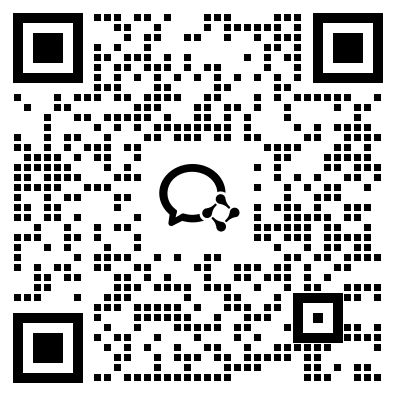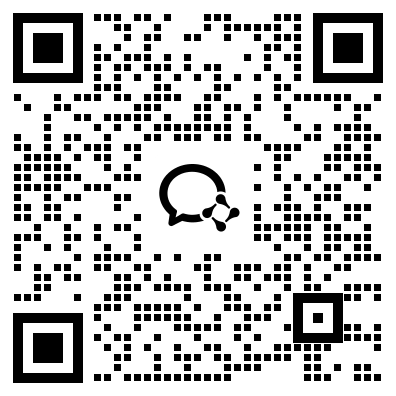考研201英语(一)在线题库每日一练(一百七十五)
摘要:以下是希赛网给大家分享考研201英语(一)在线题库每日一练,希望通过刷题可以帮助大家巩固重要知识点,对知识点查漏补缺,祝愿大家能顺利通过考试!
本文提供考研201英语(一)在线题库每日一练,以下为具体内容
1、In his book The Tipping Point, Malcolm Gladwell argues that “social epidemics” are driven in large part by the actions of a tiny minority of special individuals, often called influentials, who are unusually informed, persuasive, or well connected. The idea is intuitively compelling, but it doesn't explain how ideas actually spread.The supposed importance of influentials derives from a plausible-sounding but largely untested theory called the “two-step flow of communication”: Information flows from the media to the influentials and from them to everyone else. Marketers have embraced the two-step flow because it suggests that if they can just find and influence the influentials, those selected people will do most of the work for them. The theory also seems to explain the sudden and unexpected popularity of certain looks, brands, or neighborhoods. In many such cases, a cursory search for causes finds that some small group of people was wearing, promoting, or developing whatever it is before anyone else paid attention. Anecdotal evidence of this kind fits nicely with the idea that only certain special people can drive trends. In their recent work, however, some researchers have come up with the finding that influentials have far less impact on social epidemics than is generally supposed. In fact, they don't seem to be required at all.The researchers' argument stems from a simple observation about social influence: with the exception of a few celebrities like Oprah Winfrey—whose outsize presence is primarily a function of media, not interpersonal, influence—even the most influential members of a population simply don't interact with that many others. Yet it is precisely these non-celebrity influentials who, according to the two-step-flow theory, are supposed to drive social epidemics, by influencing their friends and colleagues directly. For a social epidemic to occur, however, each person so affected, must then influence his or her own acquaintances, who must in turn influence theirs, and so on; and just how many others pay attention to each of these people has little to do with the initial influential. If people in the network just two degrees removed from the initial influential prove resistant, for example, the cascade of change won't propagate very far or affect many people.Building on the basic truth about interpersonal influence, the researchers studied the dynamics of social influence by conducting thousands of computer simulations of populations, manipulating a number of variables relating to people's ability to influence others and their tendency to be influenced. They found that the principal requirement for what is called “global cascades” — the widespread propagation of influence through networks—is the presence not of a few influentials but, rather, of a critical mass of easily influenced people. 1.By citing the book The Tipping Point, the author intends to( ).2.The author suggests that the "two-step-flow theory" ( ). 3.What the researchers have observed recently shows that ( ). 4.The underlined phrase “these people” in paragraph 4 refers to the ones who ( ). 5.What is the essential element in the dynamics of social influence?
问题1
A、analyze the consequences of social epidemics
B、discuss influentials' function in spreading ideas
C、exemplify people's intuitive response to social epidemics
D、describe the essential characteristics of influentials
问题2
A、serves as a solution to marketing problems
B、has helped explain certain prevalent trends
C、has won support from influentials
D、requires solid evidence for its validity
问题3
A、the power of influence goes with social interactions
B、interpersonal links can be enhanced through the media
C、influentials have more channels to reach the public
D、most celebrities enjoy wide media attention
问题4
A、stay outside the network of social influence
B、have little contact with the source of influence
C、are influenced and then influence others
D、are influenced by the initial influential
问题5
A、The eagerness to be accepted.
B、The impulse to influence others.
C、The readiness to be influenced.
D、The inclination to rely on others.
2、Bankers have been blaming themselves for their troubles in public. Behind the scenes, they have been taking aim at someone else: the accounting standard-setters. Their rules, moan the banks, have forced them to report enormous losses, and it's just not fair. These rules say they must value some assets at the price a third party would pay, not the price managers and regulators would like them to fetch.Unfortunately, banks' lobbying now seems to be working. The details may be unknowable, but the independence of standard-setters, essential to the proper functioning of capital markets, is being compromised. And, unless banks carry toxic assets at prices that attract buyers, reviving the banking system will be difficult.After a bruising encounter with Congress, America's Financial Accounting Standards Board (FASB) rushed through rule changes. These gave banks more freedom to use models to value illiquid assets and more flexibility in recognizing losses on long-term assets in their income statements. Bob Herz, the FASB's chairman, cried out against those who “question our motives.” Yet bank shares rose and the changes enhance what one lobbying group politely calls “the use of judgment by management.”European ministers instantly demanded that the International Accounting Standards Board (IASB) do likewise. The IASB says it does not want to act without overall planning, but the pressure to fold when it completes its reconstruction of rules later this year is strong. Charlie McCreevy, a European commissioner, warned the IASB that it did “not live in a political vacuum” but “in the real world” and that Europe could yet develop different rules.It was banks that were on the wrong planet, with accounts that vastly overvalued assets. Today they argue that market prices overstate losses, because they largely reflect the temporary illiquidity of markets, not the likely extent of bad debts. The truth will not be known for years. But banks' shares trade below their book value, suggesting that investors are skeptical. And dead markets partly reflect the paralysis of banks which will not sell assets for fear of booking losses, yet are reluctant to buy all those supposed bargains.To get the system working again, losses must be recognized and dealt with. America's new plan to buy up toxic assets will not work unless banks mark assets to levels which buyers find attractive. Successful markets require independent and even combative standard-setters. The FASB and IASB have been exactly that, cleaning up rules on stock options and pensions, for example, against hostility from special interests. But by giving in to critics now they are inviting pressure to make more concessions.1.Bankers complained that they were forced to( ).2.According to the author, the rule changes of the FASB may result in ( ). 3.According to Paragraph 4, McCreevy objects to the IASB's attempt to ( ). 4.The author thinks the banks were “on the wrong planet” in that they ( ). 5.The author's attitude towards standard-setters is one of( ).
问题1
A、follow unfavorable asset evaluation rules
B、collect payments from third parties
C、cooperate with the price managers
D、reevaluate some of their assets
问题2
A、the diminishing role of management
B、the revival of the banking system
C、the banks' long-term asset losses
D、the weakening of its independence
问题3
A、keep away from political influences
B、evade the pressure from their peers
C、act on their own in rule-setting
D、take gradual measures in reform
问题4
A、misinterpreted market price indicators
B、exaggerated the real value of their assets
C、neglected the likely existence of bad debts
D、denied booking losses in their sale of assets
问题5
A、satisfaction
B、skepticism
C、objectiveness
D、sympathy
3、Ancient Greek philosopher Aristotle viewed laughter as “a bodily exercise precious to health.” But(1)some claims to the contrary, laughing probably has little influence on physical fitness. Laughter does (2)short-term changes in the function of the heart and its blood vessels, (3) heart rate and oxygen consumption. But because hard laughter is difficult to (4), a good laugh is unlikely to have (5) benefits the way, say, walking or jogging does. (6), instead of straining muscles to build them, as exercise does, laughter apparently accomplishes the (7), studies dating back to the 1930's indicate that laughter (8) muscles, decreasing muscle tone for up to 45 minutes after the laugh dies down. Such bodily reaction might conceivably help (9) the effects of psychological stress. Anyway, the act of laughing probably does produce other types of (10) feedback, that improve an individual's emotional state. (11) one classical theory of emotion, our feelings are partially rooted (12) physical reactions. It was argued at the end of the 19th century that humans do not cry (13) they are sad but they become sad when the tears begin to flow. Although sadness also (14) tears, evidence suggests that emotions can flow (15) muscular responses. In an experiment published in 1988, social psychologist Fritz Strack of the University of Würzburg in Germany asked volunteers to (16) a pen either with their teeth—thereby creating an artificial smile—or with their lips, which would produce a(n)(17) expression. Those forced to exercise their smiling muscles(18) more enthusiastically to funny cartoons than did those whose months were contracted in a frown,(19) that expressions may influence emotions rather than just the other way around. (20), the physical act of laughter could improve mood.
问题1
A、among
B、except
C、despite
D、like
问题2
A、reflect
B、demand
C、indicate
D、produce
问题3
A、stabilizing
B、boosting
C、impairing
D、determining
问题4
A、transmit
B、sustain
C、evaluate
D、observe
问题5
A、measurable
B、manageable
C、affordable
D、renewable
问题6
A、In turn
B、In fact
C、In addition
D、In brief
问题7
A、opposite
B、impossible
C、average
D、expected
问题8
A、hardens
B、weakens
C、tightens
D、relaxes
问题9
A、aggravate
B、generate
C、moderate
D、enhance
问题10
A、physical
B、mental
C、subconscious
D、internal
问题11
A、Except for
B、According to
C、Due to
D、As for
问题12
A、with
B、on
C、in
D、at
问题13
A、unless
B、until
C、if
D、because
问题14
A、exhausts
B、follows
C、precedes
D、suppresses
问题15
A、into
B、from
C、towards
D、beyond
问题16
A、fetch
B、bite
C、pick
D、hold
问题17
A、disappointed
B、excited
C、joyful
D、indifferent
问题18
A、adapted
B、catered
C、turned
D、reacted
问题19
A、suggesting
B、requiring
C、mentioning
D、supposing
问题20
A、Eventually
B、Consequently
C、Similarly
D、Conversely
4、In the idealized version of how science is done, facts about the world are waiting to be observed and collected by objective researchers who use the scientific method to carry out their work. But in the everyday practice of science, discovery frequently follows an ambiguous and complicated route. We aim to be objective, but we cannot escape the context of our unique life experience. Prior knowledge and interest influence what we experience, what we think our experiences mean, and the subsequent actions we take. Opportunities for misinterpretation, error, and self-deception abound. Consequently, discovery claims should be thought of as protoscience. Similar to newly staked mining claims, they are full of potential. But it takes collective scrutiny and acceptance to transform a discovery claim into a mature discovery. This is the credibility process, through which the individual researcher's me, here, now becomes the community's anyone, anywhere, anytime. Objective knowledge is the goal, not the starting point. Once a discovery claim becomes public, the discoverer receives intellectual credit. But, unlike with mining claims, the community takes control of what happens next. Within the complex social structure of the scientific community, researchers make discoveries; editors and reviewers act as gatekeepers by controlling the publication process; other scientists use the new finding to suit their own purposes; and finally, the public (including other scientists) receives the new discovery and possibly accompanying technology. As a discovery claim works it through the community, the interaction and confrontation between shared and competing beliefs about the science and the technology involved transforms an individual's discovery claim into the community's credible discovery. Two paradoxes exist throughout this credibility process. First, scientific work tends to focus on some aspect of prevailing Knowledge that is viewed as incomplete or incorrect. Little reward accompanies duplication and confirmation of what is already known and believed. The goal is new-search, not re-search. Not surprisingly, newly published discovery claims and credible discoveries that appear to be important and convincing will always be open to challenge and potential modification or refutation by future researchers. Second, novelty itself frequently provokes disbelief. Nobel Laureate and physiologist Albert Azent-Gyorgyi once described discovery as “seeing what everybody has seen and thinking what nobody has thought.” But thinking what nobody else has thought and telling others what they have missed may not change their views. Sometimes years are required for truly novel discovery claims to be accepted and appreciated. In the end, credibility “happens” to a discovery claim—a process that corresponds to what philosopher Annette Baier has described as the commons of the mind. “We reason together, challenge, revise, and complete each other's reasoning and each other's conceptions of reason.” 1.According to the first paragraph, the process of discovery is characterized by its( ).2.It can be inferred from Paragraph 2 that credibility process requires ( ). 3.Paragraph 3 shows that a discovery claim becomes credible after it ( ). 4.Albert Szent-Gyorgyi would most likely agree that ( ). 5.Which of the following would be the best title of the test?
问题1
A、uncertainty and complexity
B、misconception and deceptiveness
C、logicality and objectivity
D、systematicness and regularity
问题2
A、strict inspection
B、shared efforts
C、individual wisdom
D、persistent innovation
问题3
A、has attracted the attention of the general public
B、has been examined by the scientific community
C、has received recognition from editors and reviewers
D、has been frequently quoted by peer scientists
问题4
A、scientific claims will survive challenges
B、discoveries today inspire future research
C、efforts to make discoveries are justified
D、scientific work calls for a critical mind
问题5
A、Novelty as an Engine of Scientific Development.
B、Collective Scrutiny in Scientific Discovery.
C、Evolution of Credibility in Doing Science.
D、Challenge to Credibility at the Gate to Science.
5、In order to “change lives for the better” and reduce “dependency,” George Osborne, Chancellor of the Exchequer, introduced the “upfront work search” scheme. Only if the jobless arrive at the jobcentre with a CV, register for online job search, and start looking for work will they be eligible for benefit—and then they should report weekly rather than fortnightly. What could be more reasonable?More apparent reasonableness followed. There will now be a seven-day wait for the jobseeker's allowance. “Those first few days should be spent looking for work, not looking to sign on,” he claimed. “We’re doing these things because we know they help people stay off benefits and help those on benefits get into work faster.” Help? Really? On first hearing, this was the socially concerned chancellor, trying to change lives for the better, complete with “reforms” to an obviously indulgent system that demands too little effort from the newly unemployed to find work, and subsidises laziness. What motivated him, we were to understand, was his zeal for “fundamental fairness”—protecting the taxpayer, controlling spending and ensuring that only the most deserving claimants received their benefits.Losing a job is hurting: you don't skip down to the jobcentre with a song in your heart, delighted at the prospect of doubling your income from the generous state. It is financially terrifying, psychologically embarrassing and you know that support is minimal and extraordinarily hard to get. You are now not wanted; you are now excluded from the work environment that offers purpose and structure in your life. Worse, the crucial income to feed yourself and your family and pay the bills has disappeared. Ask anyone newly unemployed what they want and the answer is always: a job.But in Osbomeland, your first instinct is to fall into dependency—permanent dependency if you can get it—supported by a state only too ready to indulge your falsehood. It is as though 20 years of ever tougher reforms of the job search and benefit administration system never happened. The principle of British welfare is no longer that you can insure yourself against the risk of unemployment and receive unconditional payments if the disaster happens. Even the very phrase “jobseeker's allowance” is about redefining the unemployed as a “jobseeker” who had no fundamental right to a benefit he or she has earned through making national insurance contributions. Instead, the claimant receives a time-limited “allowance,” conditional on actively seeking a job; no entitlement and no insurance, at $71.70 a week, one of the least generous in the EU. 1.George Osborne's scheme was intended to( ).2.The phrase “to sign on”(Paragraph 2) most probably means ( ). 3.What prompted the chancellor to develop his scheme?4.According to Paragraph 3, being unemployed makes one feel ( ). 5.To which of the following would the author most probably agree?
问题1
A、motivate the unemployed to report voluntarily
B、provide the unemployed with easier access to benefits
C、encourage jobseekers, active engagement in job seeking
D、guarantee jobseekers' legitimate right to benefits
问题2
A、to register for an allowance from the government
B、to accept the government's restrictions on the allowance
C、to check on the availability of jobs at the jobcentre
D、to attend a governmental job-training program
问题3
A、A desire to secure a better life for all.
B、An eagerness to protect the unemployed.
C、An urge to be generous to the claimants.
D、A passion to ensure fairness for taxpayers.
问题4
A、insulted
B、uneasy
C、enraged
D、guilty
问题5
A、Unemployment benefits should not be made conditional.
B、The British welfare system indulges jobseekers' laziness.
C、The jobseekers' allowance has met their actual needs.
D、Osborne's reforms will reduce the risk of unemployment.
点击查看【完整】试卷>>延伸阅读

考研微信公众号

考研备考资料免费领取
去领取
- 3
- 0
- 0
 专注在线职业教育25年
专注在线职业教育25年









 扫描二维码
扫描二维码
 扫描二维码
扫描二维码








